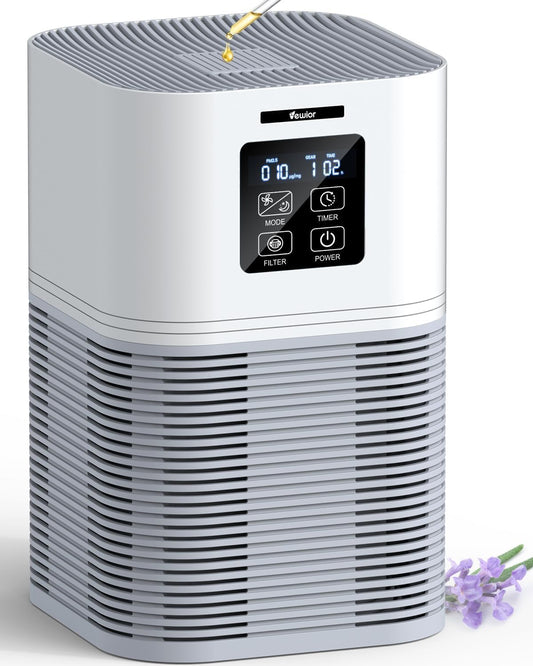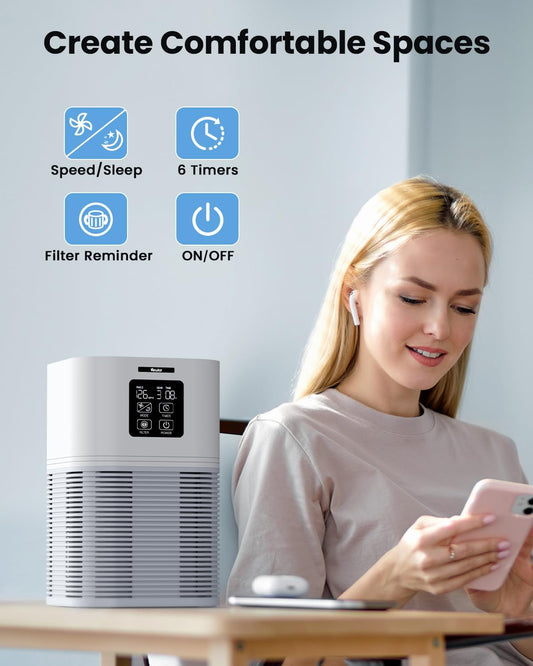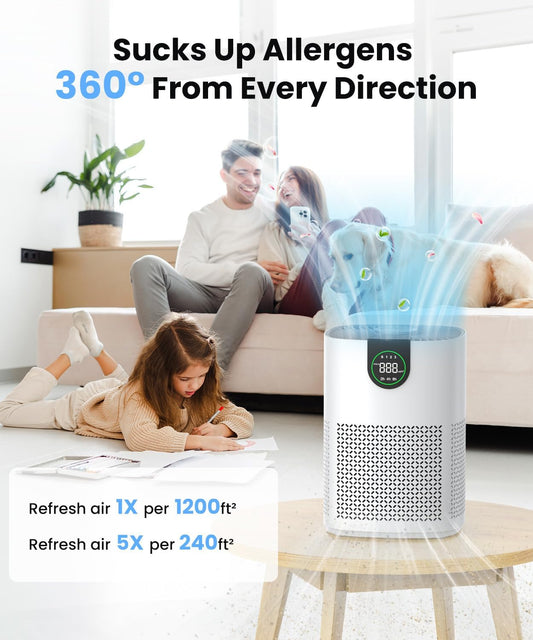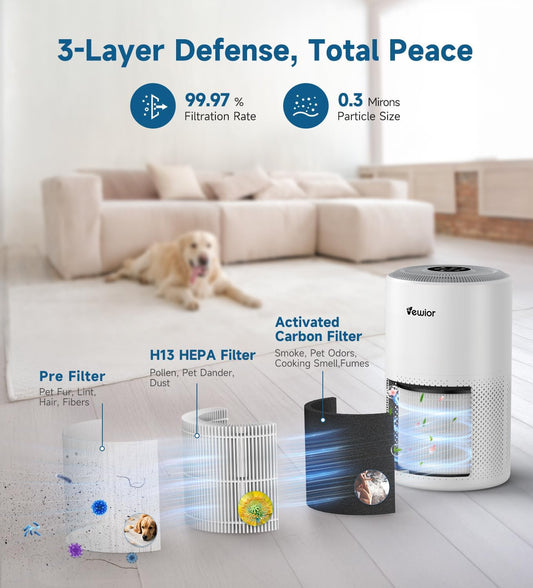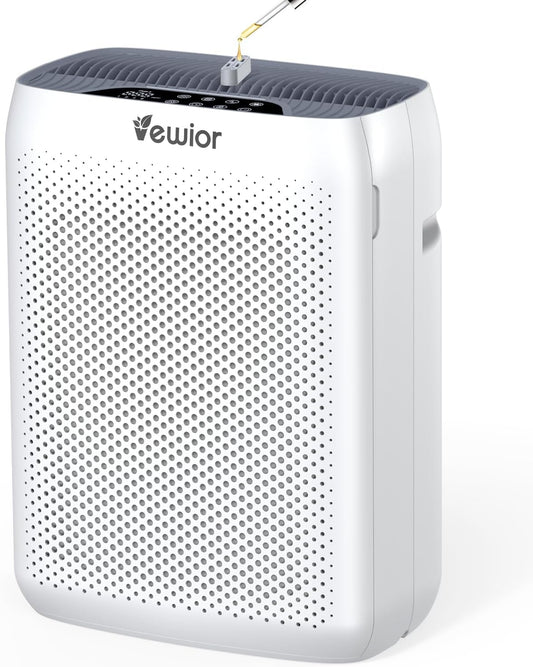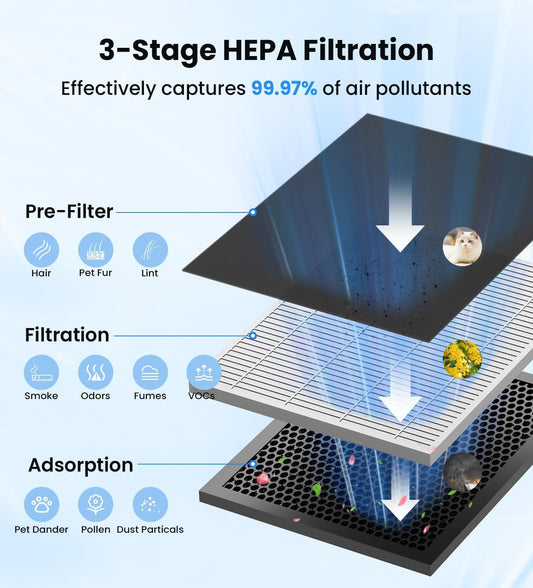Air purifiers are a long-term investment in your health—but their effectiveness hinges on one critical factor: regular filter maintenance. A clogged or outdated filter doesn’t just reduce efficiency; it can recirculate pollutants back into your home. If you’ve ever wondered, “How often do I really need to replace my filters?” this guide breaks down the factors that determine filter lifespan and shares tips to maximize your purifier’s performance.
Why Filter Replacement Matters
Filters are the heart of your air purifier. Over time, they accumulate dust, allergens, and even mold, leading to:
-
Reduced airflow: A clogged filter forces the motor to work harder, increasing energy costs.
-
Poor air cleaning: Trapped particles can escape back into your room.
-
Unpleasant odors: Saturated carbon filters stop neutralizing smells.
-
Bacterial growth: Damp or dirty filters become breeding grounds for microbes.
Filter Types and Average Lifespans
-
Pre-Filters (Washable or Replaceable)
-
Role: Capture large particles like hair and lint.
-
Lifespan: Washable pre-filters should be rinsed every 2–4 weeks. Replaceable ones last 3–6 months.
-
-
HEPA Filters
-
Role: Trap 99.97% of fine particles (dust, pollen, mold spores).
-
Lifespan: 6–12 months, depending on usage and air quality.
-
-
Activated Carbon Filters
-
Role: Absorb odors, VOCs, and gases.
-
Lifespan: 3–6 months, as carbon becomes saturated faster than HEPA.
-
-
Specialty Filters (e.g., UV-C, Ionizers)
-
Role: Target bacteria, viruses, or static particles.
-
Lifespan: UV-C bulbs typically last 1–2 years; ionizers may require periodic cleaning.
-
Factors That Shorten Filter Life
-
High Pollution Levels: Homes with pets, smokers, or wildfire smoke exposure.
-
Continuous Use: Running the purifier 24/7 vs. intermittently.
-
Humidity: Damp environments promote mold growth in filters.
-
Room Size: Units in oversized spaces work harder, straining filters.
Signs Your Filter Needs Replacing
-
Visible Dirt or Discoloration: Check filters monthly.
-
Declining Airflow: Weak output even on high settings.
-
Persistent Odors: Carbon filters can’t absorb smells when saturated.
-
Filter Replacement Alerts: Smart models will notify you.
Tips to Extend Filter Lifespan
-
Vacuum Pre-Filters Weekly: Remove large debris to reduce HEPA strain.
-
Control Humidity: Use a dehumidifier to keep levels below 50%.
-
Avoid Ozone Generators: They create secondary pollutants that clog filters faster.
-
Follow Manufacturer Guidelines: Check your manual for model-specific advice.
How Vewior Simplifies Maintenance
Our air purifier is designed for hassle-free upkeep:
-
Filter Life Indicators: Real-time alerts via display.
-
Washable Pre-Filter: Reduce replacements and save money.
-
Easy Access Design: No tools required to swap filters.
Final Thoughts
Regular filter maintenance isn’t just about protecting your air purifier—it’s about safeguarding your health. By understanding your filter type, monitoring its condition, and replacing it on schedule, you’ll ensure cleaner air year-round.


